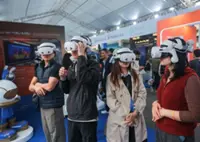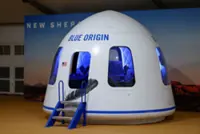A view of the Gravio "virtual drill" technology, which uses gravity and artificial intelligence to define ore bodies, being deployed in Queensland for Bridgeport Energy, Australia, in this handout image obtained by Reuters on December 19, 2023. Atomionics/Handout via REUTERS
MELBOURNE (Reuters) -Singapore-based start-up Atomionics has rolled out its technology that uses gravity and artificial intelligence to define ore bodies to its first customer, which the company says could cut costs and speed the development of minerals projects.
It has now signed contracts with three major mining companies as part of a strategy to pinpoint ore bodies of metals key to the energy transition, adding to work in Queensland state with New Hope unit Bridgeport Energy, CEO Sahil Tapiawala said.





